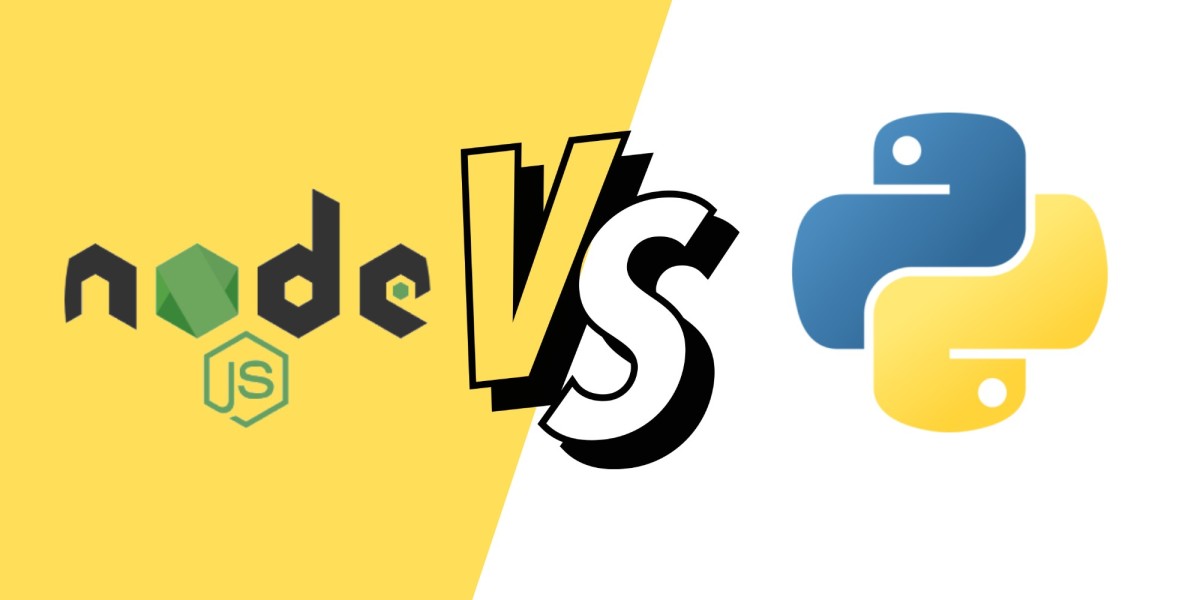In the realm of web development, Node.js and Python are two popular choices that offer distinct strengths and weaknesses. This article aims to provide an in-depth comparison of Node.js and Python, helping you make an informed decision based on your project's requirements, scalability, performance, and development ecosystem. Whether you're an individual developer, part of a Python development services team, or considering outsourcing your project, understanding the nuances of these languages will guide you toward the optimal choice for your web development endeavour.
Node.js:
Overview:
Node.js, constructed upon the V8 JavaScript engine, provides a platform for crafting server-side applications using JavaScript—a language historically linked with client-side scripting.
Key Advantages:
Asynchronous Nature: Node.js is known for its event-driven, non-blocking architecture, making it highly suitable for applications requiring real-time updates, such as chat applications or streaming services.
Single Language Stack: Developers can use JavaScript for both client-side and server-side scripting, reducing the need to switch between languages.
Vibrant Ecosystem: Node.js has a rich ecosystem of libraries, modules, and frameworks available through npm (Node Package Manager), enabling rapid development.
Scalability: Due to its non-blocking nature, Node.js can efficiently handle a large number of concurrent connections, making it a good choice for applications with high traffic.
Microservices: Node.js is well-suited for building microservices, allowing developers to create modular, independent components.
Considerations:
Complex CPU-Intensive Tasks: Node.js might not be the best choice for CPU-intensive tasks, as its single-threaded nature can lead to performance bottlenecks.
Learning Curve: While JavaScript is widely known, the event-driven, asynchronous paradigm of Node.js can be challenging for newcomers.
Python:
Overview:
Python is a versatile and readable programming language known for its simplicity and readability. While often associated with scripting and data science, it's also widely used in web development.
Key Advantages:
Wide Application Spectrum: Python's versatility makes it suitable for various tasks, from web development to scientific computing and artificial intelligence.
Extensive Libraries: Python has a vast collection of libraries and frameworks, such as Django and Flask, which simplify web development.
Developer-Friendly Syntax: Python's clear and intuitive syntax reduces development time and makes code maintenance easier.
Community and Documentation: Python boasts a large, active community and extensive documentation, making it easy to find solutions to problems.
Data Analysis and AI: Python excels in data manipulation, analysis, and machine learning, making it a go-to choice for data-centric applications.
Considerations:
GIL Limitation: Python's Global Interpreter Lock (GIL) can impact performance for multi-threaded CPU-bound applications.
Concurrency: While Python supports asynchronous programming, it might not handle real-time applications as efficiently as Node.js.
Web Framework Choices: Python's web development frameworks, while powerful, might have a steeper learning curve for beginners compared to Node.js.
Choosing the Right Fit:
1. Project Type and Requirements:
- Real-Time Applications: If your project requires real-time updates or heavy interaction with clients, Node.js could be the better choice.
- Data-Intensive Tasks: For data-centric projects, machine learning, or AI applications, Python's libraries and ecosystem offer an advantage.
2. Scalability:
- High Traffic: If your application is expected to handle high traffic and many concurrent connections, Node.js' non-blocking architecture is a plus.
- Scalability Concerns: If you anticipate your application becoming CPU-bound or dealing with complex computation, Python might face limitations due to the GIL.
3. Development Speed:
- Rapid Prototyping: Python's clean syntax and extensive libraries, particularly in web development (Django, Flask), can speed up development.
- Node.js' npm: Node.js' npm provides a wide range of packages, enabling developers to quickly implement features.
4. Team Expertise:
- JavaScript Proficiency: If your team is familiar with JavaScript, Node.js can leverage existing skills.
- Python Familiarity: For teams experienced in Python or those working on data science, Python-based web development might offer smoother integration.
5. Community and Support:
- Python Community: Python's extensive community and well-maintained documentation make it easier to find help and solutions.
- Node.js Community: The Node.js community is also vibrant, with a focus on asynchronous programming and real-time applications.
Conclusion:
In the Node.js vs Python debate, there's no clear winner—it largely depends on the specific needs of your project. Node.js excels in real-time applications and microservices, while Python offers a broad range of capabilities, from web development to data analysis and AI. Whether you're an individual developer, a team specializing in Python software development services, or considering outsourcing your project, understanding the strengths and limitations of each language is essential. Consider your project's requirements, your team's expertise, and the technical aspects that matter most, such as concurrency, scalability, and development speed. Ultimately, the choice between Node.js and Python will shape the trajectory of your project and contribute to its success.





